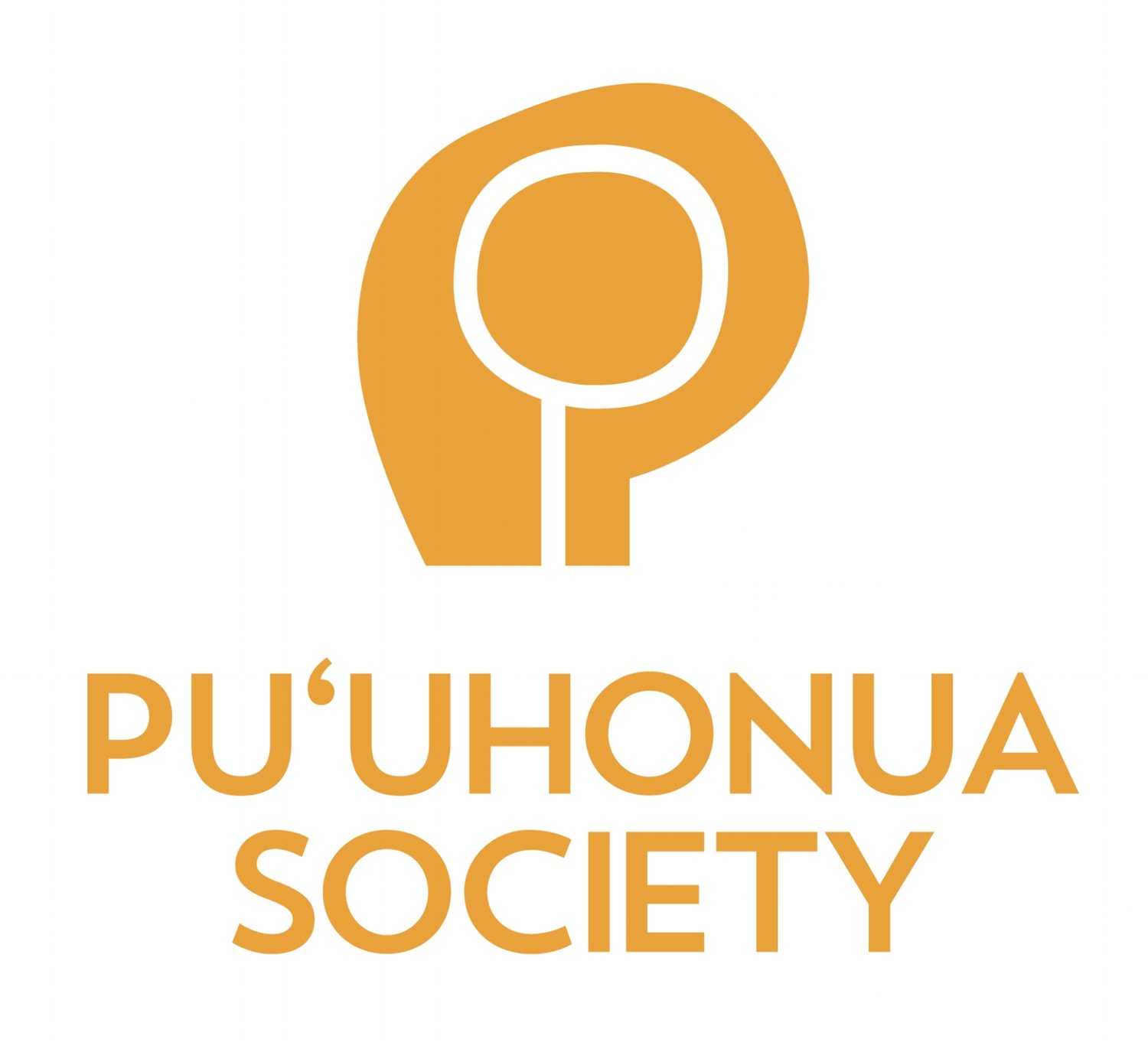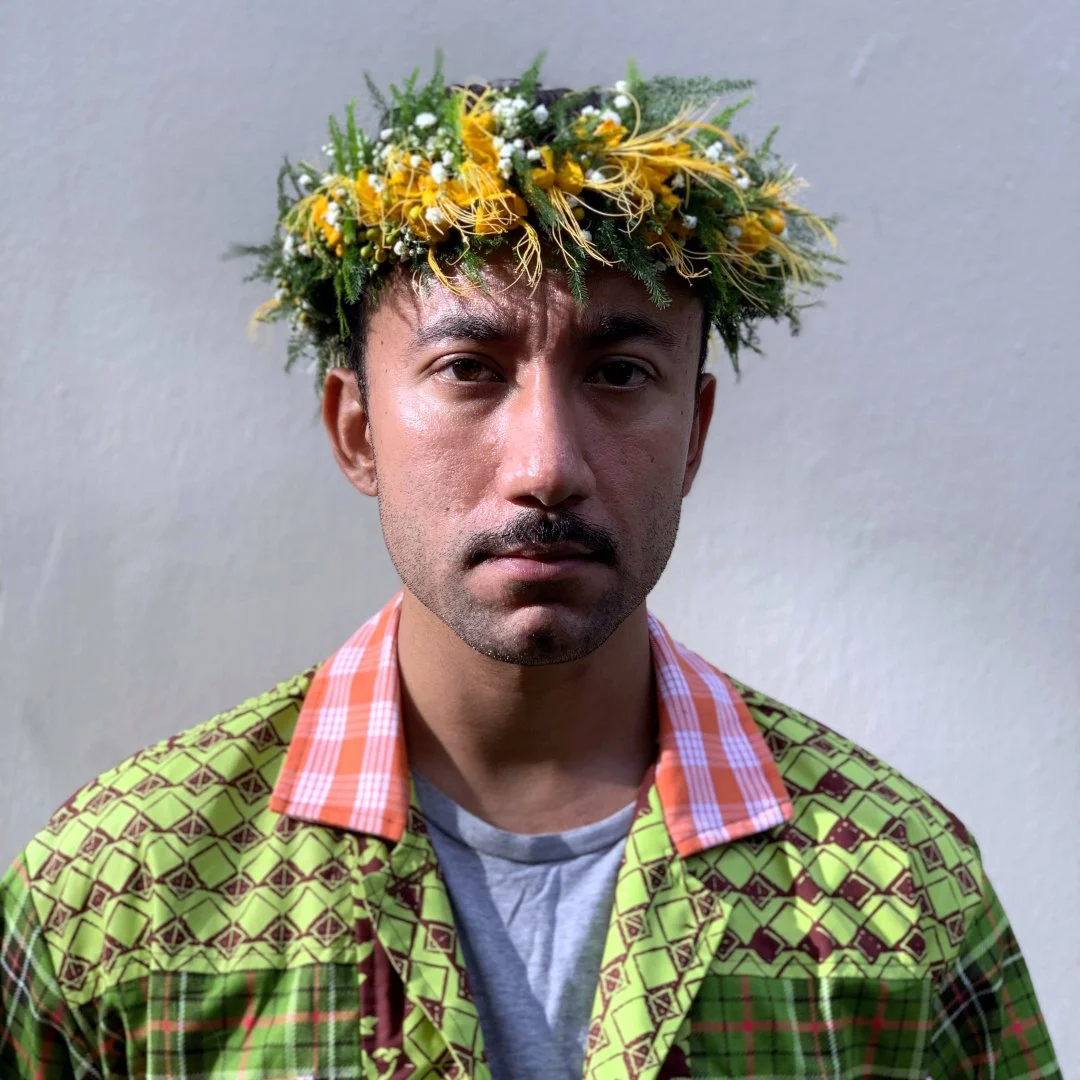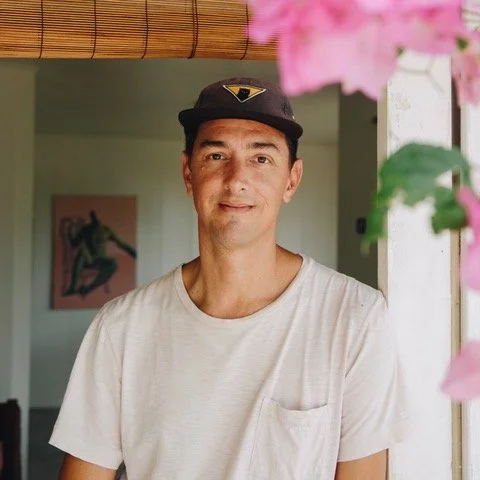Emma Broderick
Executive Director
KEANAHALA • Program Manager
Emma Broderick serves as Executive Director of Puʻuhonua Society & the Keanahala Program Manager. She is the third generation of women in her family to lead the organization, which was founded by her grandmother, Emma Akana Aluli Meyer, and run for many years by her mother, Maile Meyer. Emma was raised in Kailua, Oʻahu but now calls Kalihi Valley home. Emma has spent the past eight years working and volunteering at various Hawai'i not-for-profits in areas of education, conservation and community-based research. She completed her MPA at the University of Hawaiʻi at Mānoa with a focus in Nonprofit Management. She has a personal weaving practice and teaches basic prep and lau hala weaving classes through Keanahala. She has experience with community outreach, place-based and culturally-grounded programming, and community-based evaluation and data collection.
Josh Tengan
ʻAi Pōhaku, Stone Eaters • Program Manager
Josh Tengan is a Honolulu-based independent curator, writer, and a community arts organizer from Pauoa, Kona, Oʻahu. From 2015–2019, he worked with local and Native Hawaiian artists, to deliver Hawaiʻi’s largest annual thematic contemporary art exhibition, CONTACT, which offers a critical and comprehensive survey of local contemporary visual culture, and was a co-editor of the recent publication, CONTACT 2014–2019 (2021). He served as assistant curator of HB19 and returned to Hawaiʻi Contemporary as exhibition manager of HT22. He is the co-curator for the current multi-site exhibition of Kānaka ʻŌiwi contemporary art, ʻAi Pōhaku, Stone Eaters, with Drew Kahuʻāina Broderick and Noelle M.K.Y. Kahanu. He is also a lauhala weaver and alakaʻi with Keanahala and has studied under kumu including Cheryl and Mahina Pukahi, Lorna May Pacheco, and Dee Shimabukuro.
Dr. Manulani Aluli Meyer
NiU NOW! • Co-Director
Dr. Manu Aluli Meyer leads the Puʻuhonua Society food sovereignty initiative Niu Now, alongside Mr. Indrajit Gunasekara. Dr. Aluli Meyer works in the field of indigenous epistemology and its role in world-wide awakening. Professor Aluli Meyer obtained her doctorate in Philosophy of Education from Harvard (Ed.D. 1998) on the topic of Hawaiian epistemology. She is a world-wide keynote speaker, writer, and international evaluator of Indigenous PhDs. Her books - Hoʻoulu: Our Time of Becoming, and Hoʻopono: Mutual Emergence are available at Native Books. Aunty Manuʻs background is in wilderness education, coaching, and experiential learning. She has been an Instructor for Outward Bound and Hawaii Bound, and a coach for Special Olympics, and a cheer-leader for the Hawaiian Charter School movement. Dr. Aluli Meyer has been an Associate Professor of Education at the University of Hawai‘i at Hilo and spent five years in New Zealand as the lead designer/teacher for He Waka Hiringa, an innovative Masters in Applied Indigenous Knowledge degree at Te Wānanga o Aotearoa, the largest Māori university with 30,000+ students. Dr. Aluli Meyer is currently the Konohiki for Kūlana o Kapolei (A Hawaiian Place of Learning at the University of Hawai‘i West O‘ahu). Meyer has previously served on the Puʻuhonua Society Board of Directors.
Indrajit Gunasekara
NiU NOW! • Co-Director
Indrajit Kumara Samarasingha Gunasekara is from a long line of Indigenous farmers from Southern Sri Lanka where they continue land-based spiritual farming for over two millennia. His native home, Matara, is centered on one of the world’s ancient coconut groves spread over 30 miles planted in 589 A.D. Subsistence farming knowledge, along with multiple associated coconut practices continues to be perpetuated. Indrajit was introduced to the cultural application of the coconut at a very early age. Underneath this rich diversity of cultural wealth he also experienced the brutal reality of two civil wars which resulted in his departure from his home village in search of a place of physical safety and spiritual well-being. Hawai'i has become his home for nearly 20 years. In his hānai home he has worked with Hawaiian epistemologist, Dr. Manu Aluli Meyer, and thus his farming practice has been inspired by the Indigenous Hawaiian understanding of 'āina momona, abundance, within the philosophical context of "love land, serve people." With this understanding, Indrajit has continued his land-based practices and has activated the NiU NOW! movement which focuses on the niu, coconut, as a vital cultural, ecological, and food resource we describe as the "tree of life". In addition to his work with niu, Indrajit has worked nearly ten years as an Administrative and Technical Professional at the Kapiʻolani Community College and currently works at UH West Oʻahu. He has managed and directed educational, business and donor-funded social development as well as international peace-building projects within multicultural teams.
Donnie Cervantes
Aupuni Space • Co-Director
Donnie Cervantes is a curator and arts organizer specializing in not-for-profit contemporary arts and culture, born in California and currently based in Mānoa, O’ahu. He has been a director at Aupuni Space since 2018 and is a co-founder of TRADES Artist in Residence program based on Oʻahu (est. 2017) which seeks to address the representation of contemporary art in the Hawaiian Islands by providing maximum community access and fostering arts appreciation locally. He brings his experience of 15 years in art production and management in New York and Los Angeles.
Joan Lander
Hoʻomau Nā Maka o ka ʻĀina • Project Director
From 1981 to 2014, Joan Lander and Puhipau as Nā Maka o ka ‘Āina (NMOKA), an independent production team, co-produced nearly 100 documentary and educational programs about the land and people of Hawai‘i and the Pacific. Giving voice and face to traditional and contemporary Hawaiian culture, history, language, art, music, environment and the politics of independence and sovereignty, NMOKA’s films have been seen on PBS, Hawai‘i public and commercial television stations, public access cable channels, and broadcast/cable networks and at film festivals locally and abroad. In 2006, NMOKA began efforts to digitize and catalog their moving image archive of over 8,000 video tapes, including edited programs and unedited footage. With the passing of Puhipau in 2016, Joan Lander became the sole proprietor of the video collection, an important cultural resource for present and future generations. Like TV networks, libraries and filmmakers across the world, Joan is trying to save their moving image archive. In 2020, NMOKA partnered with Pu’uhonua Society to create the Nā Maka o ka ʻĀina Preservation Initiative to make accessible to the community NMOKA’s tapes and associated materials, including video footage from 1974-1981 when Joan produced for Videolani, Videololo and Videololo II.
Sancia Miala Shiba Nash
Hoʻomau Nā Maka o ka ʻĀina • Project Manager
Sancia Miala Shiba Nash is a documentary filmmaker from Kīhei, Maui, currently based in Honolulu, Oʻahu. Her collaborative practice is guided by oral histories, archives, and acts of translation. Since 2020, Sancia has worked closely with Joan Lander and Hawaiʻi-based arts and culture organizations to preserve and share NMOKA’s work with audiences at home and abroad. At present, she is helping to catalog Kahoʻolawe Aloha ʻĀina, a documentary about the cultural, political and military significance of Kaho‘olawe; and organizing a screening series of tapes from Ahupuaʻa, Fishponds and Loʻi. Sancia is a co-founder of kekahi wahi a local grassroots film initiative alongside Drew K. Broderick and an alakaʻi of Keanahala, Puʻuhonua Society’s program dedicated to weaving relationships through ulana moena.
T. Līhau Collier
Kānaka Knowledge Exchange Publication Alakaʻi
Līhau Collier was born on the island of Oʻahu and raised in the district of Hāmakuapoko on the island of Maui. She is an alumni of Kula Kaiapuni ʻo Maui – Hawaiian Language Immersion Program on Maui and earned her Bachelors of Arts in Philosophy from the University of Hawaiʻi at Hilo, Class of 2021. Currently she leads and supports Puʻuhonua Society in creating publications to be part of a continuing effort of community knowledge exchange. Whether it be a small four page series about the Season of Lono or a 144 page ancestral moʻolelo of Kaʻū, Līhau’s kuleana is to ensure all publications are relevant, fill a need in the community, and are easily accessible. Līhau brings forth ʻike (knowledge) of Hawaiian culture, history, language, and well-being in the form of publications and holds space for meaningful gatherings with kūpuna, kānaka scholars, and community leaders to acquire knowledge best suited for people of Hawaiʻi.









